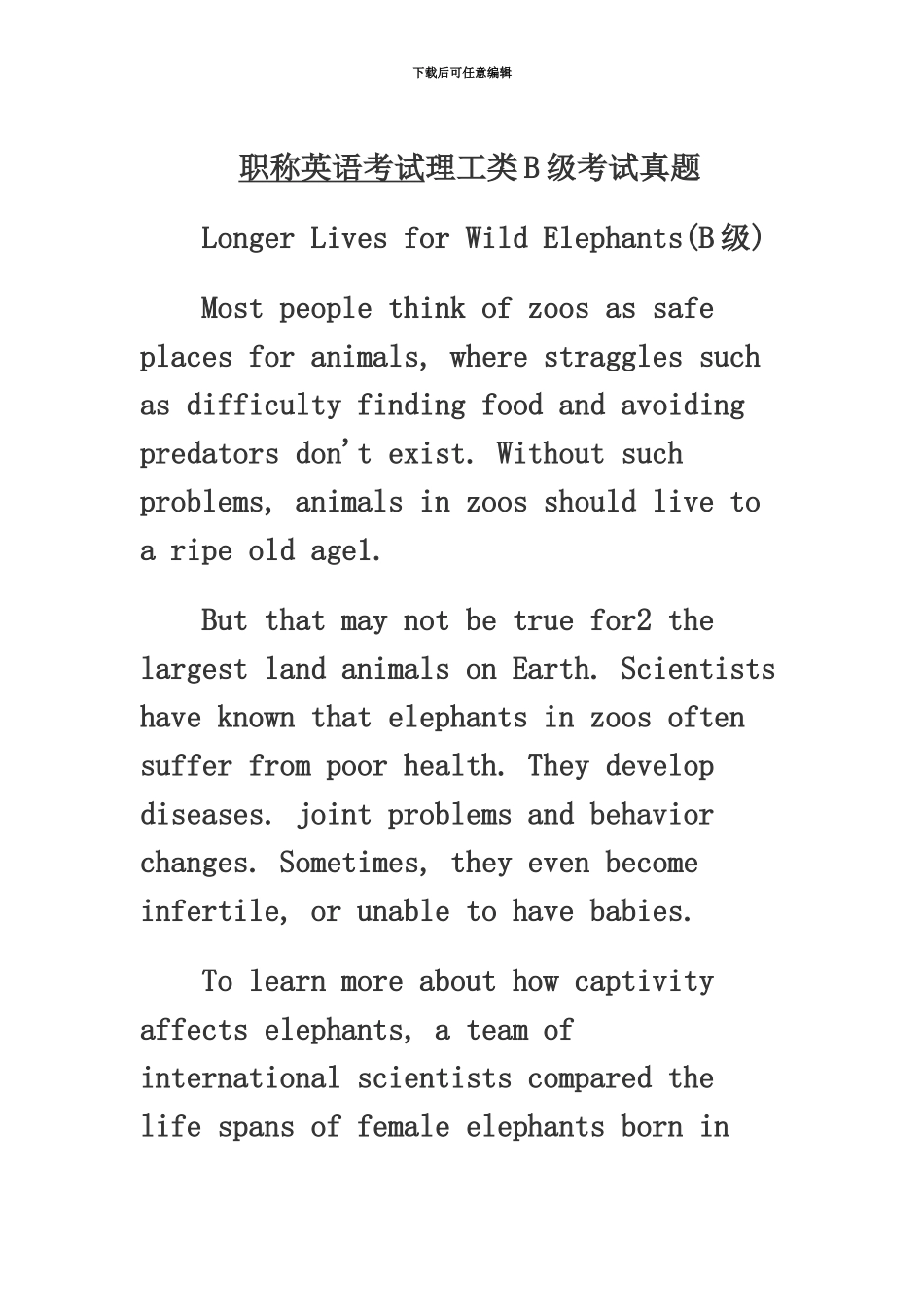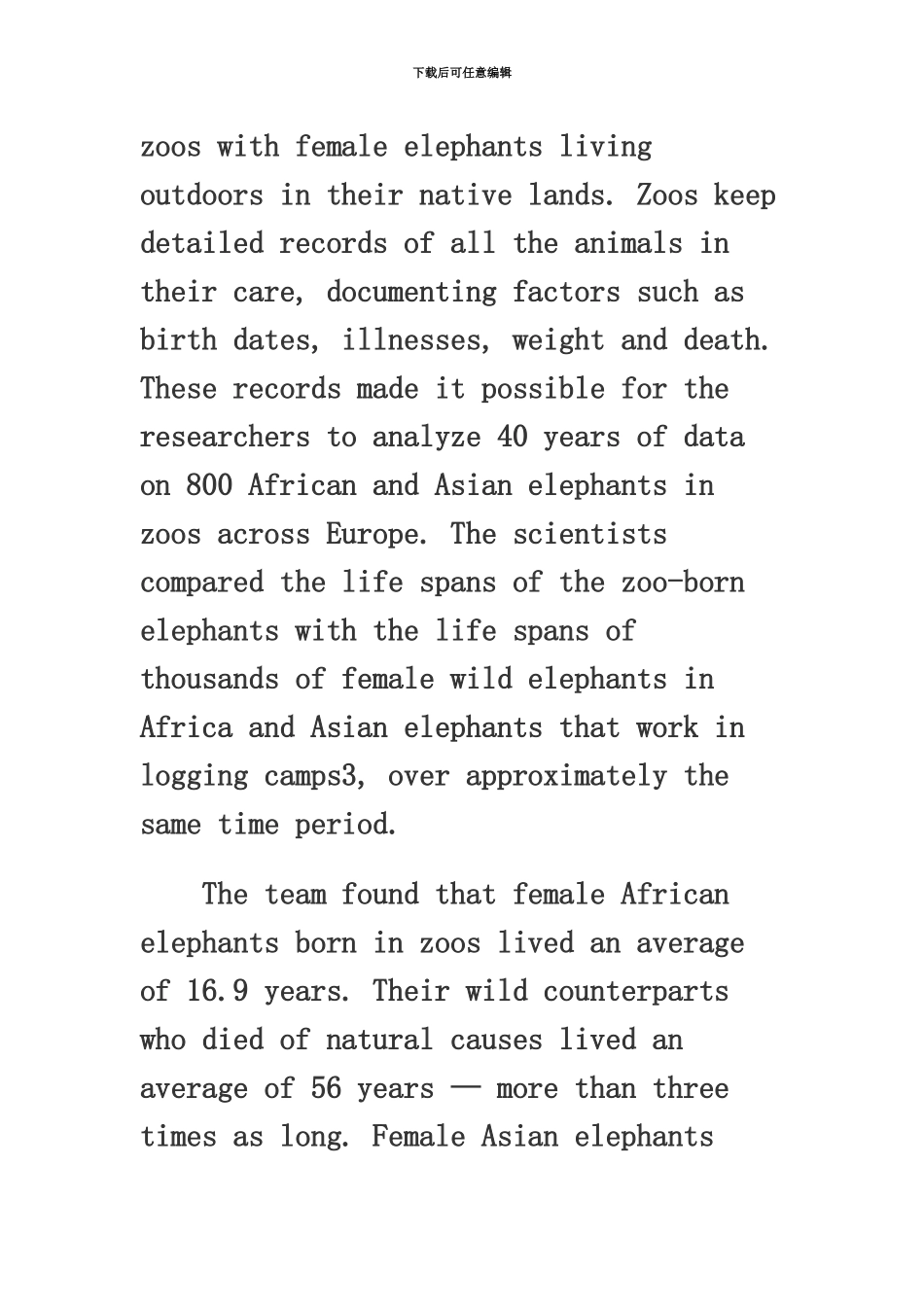下载后可任意编辑职称英语考试理工类 B 级考试真题下载后可任意编辑 职称英语考试理工类 B 级考试真题 Longer Lives for Wild Elephants(B 级) Most people think of zoos as safe places for animals, where straggles such as difficulty finding food and avoiding predators don't exist. Without such problems, animals in zoos should live to a ripe old age1. But that may not be true for2 the largest land animals on Earth. Scientists have known that elephants in zoos often suffer from poor health. They develop diseases. joint problems and behavior changes. Sometimes, they even become infertile, or unable to have babies. To learn more about how captivity affects elephants, a team of international scientists compared the life spans of female elephants born in 下载后可任意编辑zoos with female elephants living outdoors in their native lands. Zoos keep detailed records of all the animals in their care, documenting factors such as birth dates, illnesses, weight and death. These records made it possible for the researchers to analyze 40 years of data on 800 African and Asian elephants in zoos across Europe. The scientists compared the life spans of the zoo-born elephants with the life spans of thousands of female wild elephants in Africa and Asian elephants that work in logging camps3, over approximately the same time period. The team found that female African elephants born in zoos lived an average of 16.9 years. Their wild counterparts who died of natural causes lived an average of 56 years — more than three times as long. Female Asian elephants 下载后可任意编辑followed a similar pattern. In zoos, they lived 18.9 years, while those in the logging camps lived 41.7 years. Scientists don't yet know why wild elephants seem t...


